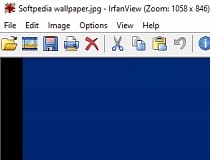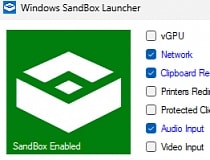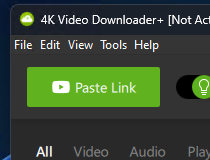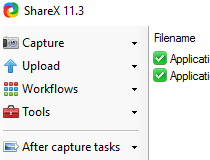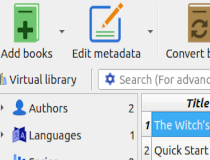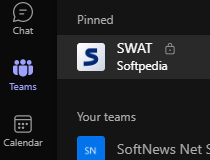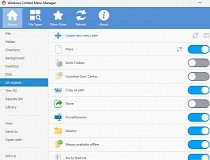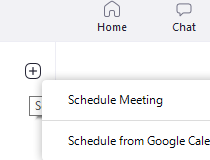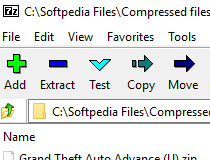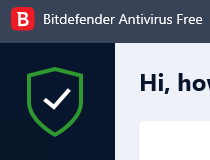makeself is a script to create self-extractable compressed tar archives.. #Archive maker #Tar archives #Self-extractable archive #Makeself #Self-extractable #Archive
makeself project is a small shell script that generates a self-extractable tar.gz archive from a directory. The resulting file appears as a shell script (many of those have a .run suffix), and can be launched as is.
The archive will then uncompress itself to a temporary directory and an optional arbitrary command will be executed (for example an installation script). This is pretty similar to archives generated with WinZip Self-Extractor in the Windows world. Makeself archives also include checksums for integrity self-validation (CRC and/or MD5 checksums).
The makeself.sh script itself is used only to create the archives from a directory of files. The resultant archive is actually a compressed (using gzip, bzip2, or compress) TAR archive, with a small shell script stub at the beginning.
This small stub performs all the steps of extracting the files, running the embedded command, and removing the temporary files when it's all over. All what the user has to do to install the software contained in such an archive is to "run" the archive, i.e sh nice-software.run.
I recommend using the "run" (which was introduced by some Makeself archives released by Loki Software) or "sh" suffix for such archives not to confuse the users, since they know it's actually shell scripts (with quite a lot of binary data attached to it though!).
The syntax of makeself is the following:
makeself.sh [args] archive_dir file_name label startup_script [script_args]
args are optional options for Makeself. The available ones are : --version : Prints the version number on stdout, then exits immediately --gzip : Use gzip for compression (is the default on platforms on which gzip is commonly available, like Linux) --bzip2 : Use bzip2 instead of gzip for better compression. The bzip2 command must be available in the command path. I recommend that you set the prefix to something like '.bz2.run' for the archive, so that potential users know that they'll need bzip2 to extract it. --compress : Use the UNIX "compress" command to compress the data. This should be the default on all platforms that don't have gzip available. --nocomp : Do not use any compression for the archive, which will then be an uncompressed TAR. --notemp : The generated archive will not extract the files to a temporary directory, but in a new directory created in the current directory. This is better to distribute software packages that may extract and compile by themselves (i.e. launch the compilation through the embedded script). --current : Files will be extracted to the current directory, instead of in a subdirectory. This option implies --notemp above. --follow : Follow the symbolic links inside of the archive directory, i.e. store the files that are being pointed to instead of the links themselves. --append (new in 2.1.x): Append data to an existing archive, instead of creating a new one. In this mode, the settings from the original archive are reused (compression type, label, embedded script), and thus don't need to be specified again on the command line. --header : Makeself 2.0 uses a separate file to store the header stub, called "makeself-header.sh". By default, it is assumed that it is stored in the same location as makeself.sh. This option can be used to specify its actual location if it is stored someplace else. --copy : Upon extraction, the archive will first extract itself to a temporary directory. The main application of this is to allow self-contained installers stored in a Makeself archive on a CD, when the installer program will later need to unmount the CD and allow a new one to be inserted. This prevents "Filesystem busy" errors for installers that span multiple CDs. --nox11 : Disable the automatic spawning of a new terminal in X11. --nowait : When executed from a new X11 terminal, disable the user prompt at the end of the script execution. --nomd5 and --nocrc : Disable the creation of a MD5 / CRC checksum for the archive. This speeds up the extraction process if integrity checking is not necessary. --lsm file : Provide and LSM file to makeself, that will be embedded in the generated archive. LSM files are describing a software package in a way that is easily parseable. The LSM entry can then be later retrieved using the '-lsm' argument to the archive. An exemple of a LSM file is provided with Makeself. archive_dir is the name of the directory that contains the files to be archived file_name is the name of the archive to be created label is an arbitrary text string describing the package. It will be displayed while extracting the files. startup_script is the command to be executed from within the directory of extracted files. Thus, if you wish to execute a program contain in this directory, you must prefix your command with "./". For example, ./program will be fine. The script_args are additionnal arguments for this command.
What's New in This Release:
� Many internal bugfixes and additional safety checks were added. � This release adds --encrypt for symmetric encryption through GPG. � It allows extraction to run asynchronously.
makeself 2.1.5
add to watchlist add to download basket send us an update REPORT- runs on:
- Linux
- main category:
- System
- developer:
- visit homepage
IrfanView 4.67
Windows Sandbox Launcher 1.0.0
4k Video Downloader 1.5.3.0080 Plus / 4.30.0.5655
ShareX 16.0.1
calibre 7.9.0
Microsoft Teams 24060.3102.2733.5911 Home / 1.7.00.7956 Work
Context Menu Manager 3.3.3.1
Zoom Client 6.0.3.37634
7-Zip 23.01 / 24.04 Beta
Bitdefender Antivirus Free 27.0.35.146
- Zoom Client
- 7-Zip
- Bitdefender Antivirus Free
- IrfanView
- Windows Sandbox Launcher
- 4k Video Downloader
- ShareX
- calibre
- Microsoft Teams
- Context Menu Manager
